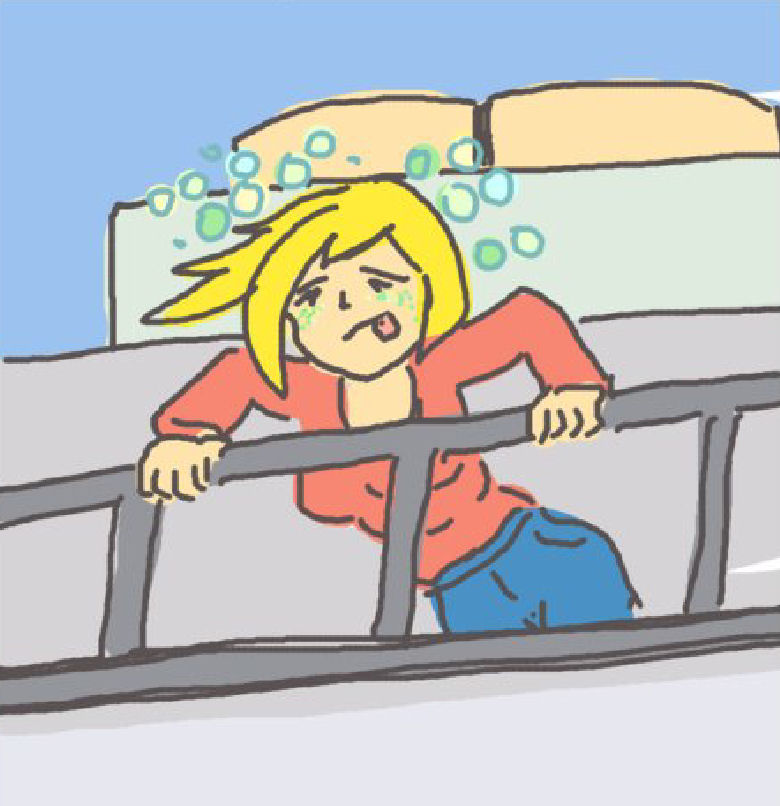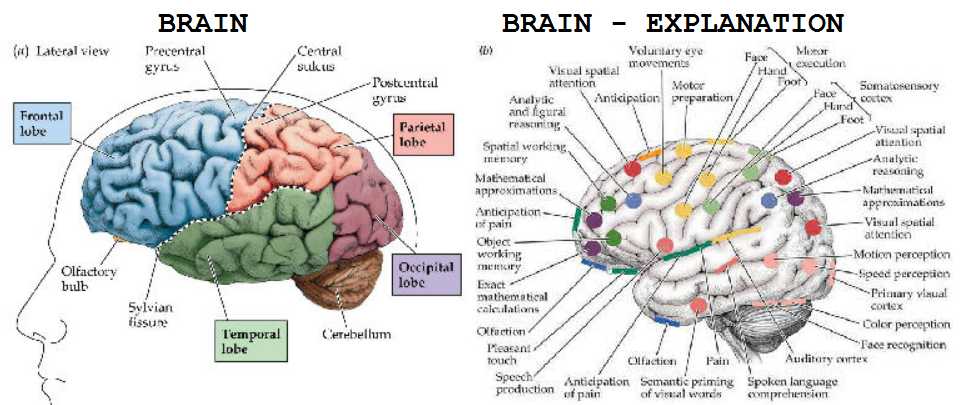191.WHY DO WE GET SEASICK?
Seasickness is related to the whole question of equilibrium and dizziness. Our organs of balance contain certain stiff hairs which are surrounded by liquid. When we move in any direction, the liquid moves the hairs. These hairs send a message to the brain, which gives us the sensation of moving in that direction.
In our normal activities this liquid, called lymph, are such that our bodies can adjust to changes easily and we manage to keep our balance. But what happens on a ship? As the position of the deck changes under our feet, the lymph is shaken back and forth. It actually rocks to and fro, and from side to side.
190.WHAT IS THE BRAIN?
Of all the things that distinguish man from the rest of the animal kingdom, the most important is his brain. Many of the lower animals have no brain at all, or a tiny one, or one that is poorly developed. For instance, an earthworm has a brain about the size of a pinhead, a rabbit has a thimble-sized brain. The brain of a man weighs, on the average, about 1.3 kilograms.
By the way, the size of the brain is not the most important thing about it. An elephant has a bigger brain than man, but it is not as well developed.
189.WHAT IS MEMORY?
Can you recite the alphabet easily and quickly? Can you write your name easily? Can you play the scale on a musical instrument?
You would probably say that you memorized all this. But what you actually did was to learn them. And the way you learned them was by forming a habit! In other words, what was once quite difficult for you, such as reciting the alphabet or playing the scale, became easy and almost automatic when you formed a habit of doing it. So memory can be described as learning by means of forming habits.




